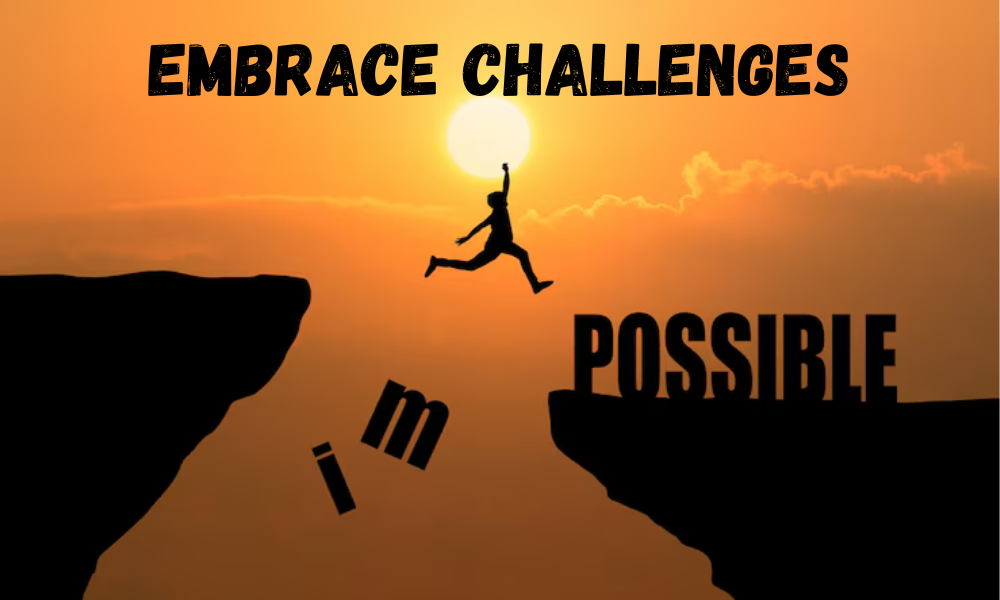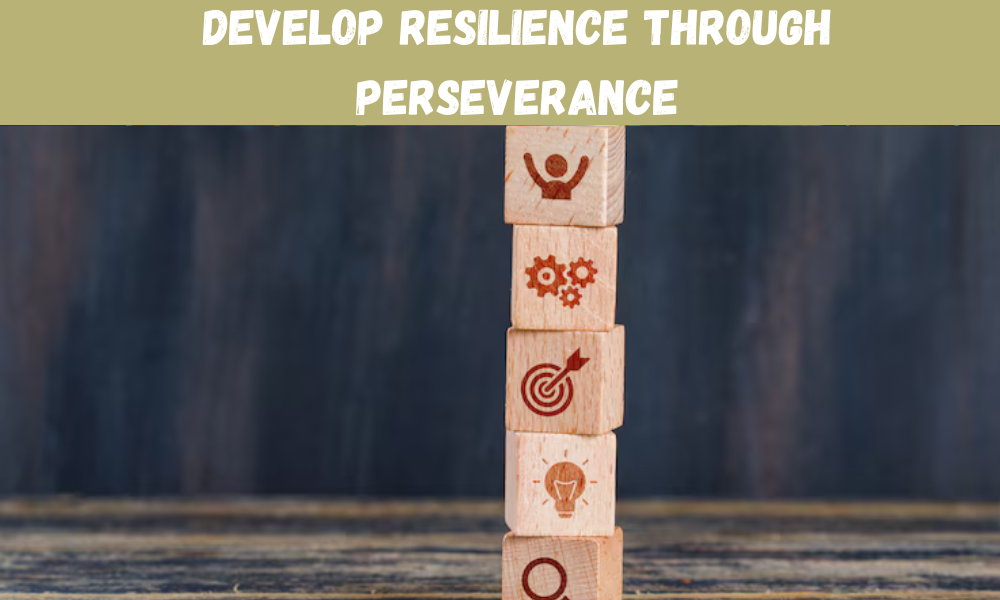10 Ways to Develop a Growth Mindset (Personality Development)
Introduction
Table of Contents
Toggle
Success is not merely talent but also the frame of mind. A growth mindset would spur learning from failure and embracing challenges. Unlike a fixed mindset which limits potential; however, a growth mindset develops resilience, adaptability, and self-improvement.
In her more than 25 years of research as a psychologist, Carol Dweck propounded the growth mindset that treats the students’ thinking about themselves as important to success. For such categories of people, they actually believe that what they have can develop, as with effort and learning. They also see obstacles as opportunities, not hindrances.
Adopting a growth mindset changes your outlook towards work, relationships, and personality development. Moves from comfort limit and straight into enthralling learning. Those people who have a good growth mindset would crave feedback, change, and perseverance to care for failures. They understand that intelligence and skills are not fixed, but they can improve during the growth process.
In this blog, we shall present 10 powerful practices to develop a growth mindset. Embrace challenges, practice patience, and shift your thinking-all these strategies will guide you to make your strongest mind shift. Whether you want to advance in your career, increase your self-belief, or develop resilience, the growth mindset is the answer. Start today and unlock your true potential!
1. Embrace Challenges for a Strong Growth Mindset

An obstacle is merely an opportunity. A growth mindset distinguishes those who see adversity as a chance to learn and develop; those who refuse to accept challenges know that growth takes place in their discomfort. Inclusion of resistance in one’s life builds resilience, cultivates confidence, and shapes personality. The more you push, the more able you become.
Successful people have often encountered failure before success; Thomas Edison failed repeatedly thousands of times to invent the light bulb, yet he persevered because of his growth mindset through the hardships. He learned to see failure as an experience instead of a dead end. You could do the same. Rather than fear failure, see it as part of the road to success. Every single challenge structures skills and broadens the horizon.
To foster a growth mindset, begin by changing your views towards challenges. Present them as creatures to be befriended- for learning. Get rid of “I can’t do it” and adopt, “What do Ineed to do to grow?”. Celebrate small wins, then keep going. Surround yourself with resilient and determined people. Thus, how you react to these challenges determines how much you will grow. Keep learning, keep growing, and let every challenge be a reinforcement to your journey.
2. View Failures as Learning Opportunities

In the same vein, failure is not weakness; it’s the learning way to success. A growth mindset will allow you to view failures as lessons rather than humiliating defeats. If you can change your thinking to see every setback as a teaching experience that pushes you to upgrade, then in that way really, failure becomes a sort of feedback. The person with a fixed mindset will see failure as a limit; the growth-oriented person will respect failure for its right value-as feedback-another chance to learn. This sort of mental outlook builds resilience for life among students, as well as adaptability and problem-solving skills.
Many of the greatest successes in the world have had failures. Thomas Edison failed for many thousands of times before he finally got the light bulb to work. He developed a growth mentality and began to convert obstacles into opportunities; hence, he proved that persistence always yields breakthroughs. J.K. Rowling was rejected many times before publishing her first Harry Potter book. Instead of quitting, she used that feedback to improve her writing. These anecdotes reaffirm that when seen in the right light, failure builds a bridge toward success.
Embracing a growth mindset means analyzing failures instead of being frightened by them. Ask yourself: What can I learn from this experience? Identify your mistakes, change your tactics, and keep going. Failure is central to the development of one’s personality, testing his or her patience, self-awareness, and emotional intelligence. It teaches that setbacks are temporary, and change occurs only through hard work and effort.
Embrace failure, not avoid it. Success is persistence, learning, and the courage to try again. Each failure is a lesson that makes you stronger and wiser.
3. Cultivate a Love for Lifelong Learning

The growth mindset emphasizes the intrinsic values of continual learning and self-development. Lifelong learning encourages new perspectives, improvisation of skills, and uses adaptability. These people actively search for new experiences and challenges. They understand that success is not about an intellectual quotient. It is about the willingness to exert effort and curiosity, and that promotes creativity, problem-solving ability, and resilience in life and business.
Lifelong learning is about the upliftment of one’s personality. It builds one’s confidence while giving a chance to take better decisions and interact with others on better levels. The modern world is constantly changing, with people remaining relevant with the help of books, online courses, and new skills. People operating from a growth mindset see learning as a journey, not an endpoint. They see mistakes as faceless teachers and learn from every situation.
A learner’s attitude converts adversity into a stepping stone. Asking questions and experimenting with new ideas and thoughts is the way toward personal and career growth. Keeping company with intellectually stimulating people is also important in continuing learning. The more you learn, the more you will adapt and become successful.
To build a growth mindset, make the commitment to learn something new every day. Listen to a podcast; attend the next seminar in town; take some time to check out subjects that are unfamiliar to you; receive every dose of constructive criticism; question your own limiting beliefs. The love of lifelong learning can become the key for new openings in the very direction of your desired personal transformation. Consider it worthwhile from the start, and the success shall chase after you.
4. Replace Negative Self-Talk with Positive Affirmations

It is the bad self-talk that takes away the heart from confidence and blocks it to progress. A growth mindset will be able to occupy this space with positive words, such as self-talk. You realize that what you say to yourself eventually shapes your actions, mindset, and overall success. If you keep saying ‘I can’t do it,’ then you are limiting your potential. But when saying ‘I can improve with effort,’ you motivate and inspire yourself. Such a mental shift is very important in personality building as well as self-development.
Positive affirmations help in rewiring the brain for success. The repetitive statements such as ‘I learn from my mistakes’ help reinforce the concept of growth mindset. Research has proved that self-affirmation lowers stress and boosts self-confidence. The secret lies in practice; practice daily and believe in your words. The repetition of positive affirmations when spoken aloud can have a compounding effect. Slowly, your subconscious mind will start believing in your ability to grow and improve.
A growth mindset thrives in an environment filled with encouragement and positive thinking. Instead of concentrating on the failures, celebrate the progress and effort instead. When you want to say something encouraging during a hardship, say to yourself, “Every challenge helps me to grow.” Create positive surrounds and avoid negative self-prophecy. The more you practice, the stronger your mindset. Personality development is greater when you replace negativity with uplifting thoughts. Use affirmations, and you will watch your confidence rise.
You will inspire a growth mindset in yourself, which success will drive up with the right self-talk. Talk to yourself in a positive way, keep working at it, and believe that you can do it!
5. Seek Constructive Feedback and Act on It

Feedback can do wonders when it comes to self-improvement. A growth mindset empowers a person to view feedback as opening up opportunities for development. Instead of being terrified to embrace criticism, one should welcome it just like a learning opportunity. Constructive feedback highlights what one does best and what potential improvement areas are. It further sharpens skills and makes personal and professional growth possible. When you actually seek feedback, you prove to be making doors for new perspectives and developing better decisions.
Most people avoid feedback because of fear from judgment. But, people with growth mindsets recognize the importance of it in defining personality. They do not personalize feedback; rather, they internalize it for personal improvement. What’s more, they would be able to take feedback by listening with no defense. They would ask questions to clarify vague points and utilize the suggestions to take their performance to the next level. Growth happens when one changes, learns, and evolves from constructive insights.
However, since not all types of feedback are useful, learn to differentiate. Seek the opinions of trusted mentors, colleagues, or experts who would provide an objective insight into the situation. Make reflection about feedback and then make necessary changes. Monitor progress and stay committed to self-improvement. With a growth mindset, every actionable advice would become one’s stepping stone to the better version of himself.
Feedback is not for proving someone wrong, but for unleashing the potential. By taking feedback and putting it into action, an individual can move faster and develop a sound personality. Create a cycle of offering feedback continuously; gradually, you will improve each and every aspect of your life.
6. Develop Resilience Through Perseverance

Resilience is at the heart of a growth mindset. Therefore, building resilience allows you to heal from disappointments and keep your spirit high against all odds. So, people who develop the quality of resilience believe that setbacks are not forever. Resilient people consider setbacks to be learning opportunities for enhancement. Even if it feels like they are crawling, resilient people will continue to move forward. Such a mindset will be pivotal in personality development because it develops confidence, patience, and emotional intelligence.
Perseverance stokes the fires of resilience by creating the attitude that gives no quarter. When faced with problems, people with growth mindsets will adapt and work their way through solutions. They refuse to allow temporary setbacks to define their capabilities. Instead, they will refine their methods and move on. Resilience is crafted through self-discipline and mental toughness and willingness to embrace discomfort. Every challenge gives you a new level at which to build success.
Some practical ways of developing resilience are setting realistic goals, having a positive disposition, and learning from constructive criticism. Being in an environment full of supportive people will also help to strengthen one’s perseverance. Growth occurs when you regularly defy your limits. The better you become at resilience, the better you will be at meeting adversity. Personality-wise, you’ll flourish along the way, becoming flexible, self-assured, and geared toward self-betterment.
Being resilient means turning problems into opportunities. Your growth mindset ensures that challenges become gateways to success. Never lose hope, accept challenges, and labor for progress.
7. Surround Yourself with Growth-Minded People

So, there are those that surround you who organize your thinking. Even people with a growth mindset will motivate a more progressive attitude towards themselves. Just because their thinking can’t be rescued, your superiority even in negativity will inspire. An environment that is positive can even motivate a focus on self-improvement. When you associate with growth-oriented individuals, you just end up building habits that serve success with absolutely no effort.
A strong support system provides constructive feedback and motivation in personality development. Growth-minded people value effort not just achievement. They will get you to challenge and forego failure experiences as learning moments. Engaging these people will enhance one’s creative problem-solving and flexibility. Their motivation fortifies belief in progress through improvement.
To create such a network, find mentors, participate in learning communities, and engage in substantial conversations with others. Identify friends and colleagues who are challenging and uplifting rather than negative and limiting beliefs that can hinder growth. The growth mindset flourishes in this kind of environment that promotes curiosity, persistence, and lifelong learning. Your circle determines how far you go in life; thus, carefully choose your circle.
Could such an environment be purposely built with like-minded and forward-looking people? It becomes so contagious; once inspired, the very same mindsets would inspire you to cross the lines of boundaries and excellence. Be deliberate in the choice of your social circle, and observe the effects on your mindset.
8. Set Process-Oriented Goals Over Outcome Goals

A growth mindset indicates that progress matters, and that perfection means nothing. Many set outcome-based goals, and look only at the results. Yet true success is by process-oriented goals that consider effort, learning, and consistency. These are the ones that develop resilience, nurturing improvements lasting longer than short charges of achievement. For instance, instead of stating, “I want to lose ten pounds,” think, “I will now exercise every day and eat better.” Such a change encourages continuous action until consistent success becomes a natural consequence.
In the context of personality development, process-oriented goals further instill the values of discipline, patience, and perseverance. They empower individuals to mark growth while abolishing the fear of failure. Outcome-only chasing gives the person no immediate motivation during setbacks. Conversely, a process-oriented mentality sees challenges as learning opportunities. This practice nurtures flexibility and keeps one’s motivation alive when results come slowly. Athletes, artists, and successful professionals use this approach. They give precedence to daily habits and gradual improvements rather than soaking in immediate success.
Growth mindset practices target effort for measuring progress. Reinforcing small wins builds momentum, and that momentum gives winners some confidence to stay in the process. They realize that persistence pays off, not some semblance of luck. They refocus their purpose on actions that generate long-term sustainable success. In every area, be it career advancement, developing skills, or self-improvement, process goals sustain continuous learning. Make this a habit; soon, the outlook and achievements will follow suit.
9. Practice Patience and Consistency

For developing a growth mindset, it requires a substantial amount of patients and efforts. The smallest bit of progress often takes the longest time, and seldom does it come like a bolt from the blue: most people seem to give up rather fast because they expect things to happen quickly. On the other hand, a growth mentality ensures that you stick with it even when things seem at a crawl. Continuous, little changes lead to those “bricks” that create great success.
Patience is vital in personality development since it keeps your focus on goals but not frustrations. It lets you reflect and adjust in case of confusion caused by setbacks, while consistency transforms minor actions into habits. Practicing your skills for a few minutes daily results in complete mastery over time. Growth-minded people realize that true change comes with time: they see the process and just keep moving forward.
Success is not all about perfection. It’s becoming better. Patience and consistency lead you towards resilience and develop the discipline to face obstacles without losing inspiration. In this way, it is quite likely to make your growth mindset stronger and work along with personality development. It informs perseverance, focuses on emotional control, and fear is replaced by learning through failures and improving. Stay patient, stay consistent, and trust the journey. Every small effort brings you closer to success. Keep growing, and results will follow.
10. Celebrate Progress and Small Wins

Advancement itself, and not merely achievement beyond a given point, is what marks growth in one’s thinking. Small wins are evidence of desirable habit formation, encouragement in addition to motivating. There are small steps taken by every person which eventually lead to great success through the passage of time. Progress gives a person the opportunity to remain committed to learning and self-advancement. Small wins cause you to build a flexible mental bite of planning resilience and confidence. This change in mindset prevents you from getting demoralized; it in fact helps you keep moving forward as a continuously improving individual.
Personality development, therefore, is a slow process that demands an unending effort and acknowledgment of oneself. It’s one thing to wait before realizing that, for instance, there’s been some progress made along other lines that would require a good dose of patience and positivity. Collecting the
recompenses gained in learning to conquer fears or getting a new skill adds up mile by mile. Such success gives a small Dopamine high, which tends to motivate and engage a little more. A little while ago, doing so was positively associated with self-discipline and was likely to make one act earlier when faced with many negative situations. Keeping a journal, setting smaller goals, and sharing success with other people can all help in this regard.
It encourages putting in effort and persevering, rather than only concentrating on the results. Small wins remind one that improvement is an ongoing process and rewarding. They are the building blocks for greater things and for long-term faith in self. What fuels the drive for progress is indeed the sense of moving forward, making challenges that one has to face seem quite less hectic.
Take charge of your growth journey! Start implementing these strategies today and unlock your full potential.
Conclusion
In a nutshell, development of a growth mindset is a transformative journey that takes consistent effort and self-awareness and sustains an ability to embrace challenges. Use these 10 strategies to help yourself shift perspective, strengthen resilience, and reach new heights of success, both personally and professionally. Always be committed to learning and make sure to have fun while doing it. Start, will see how your attitude shape tomorrow!
